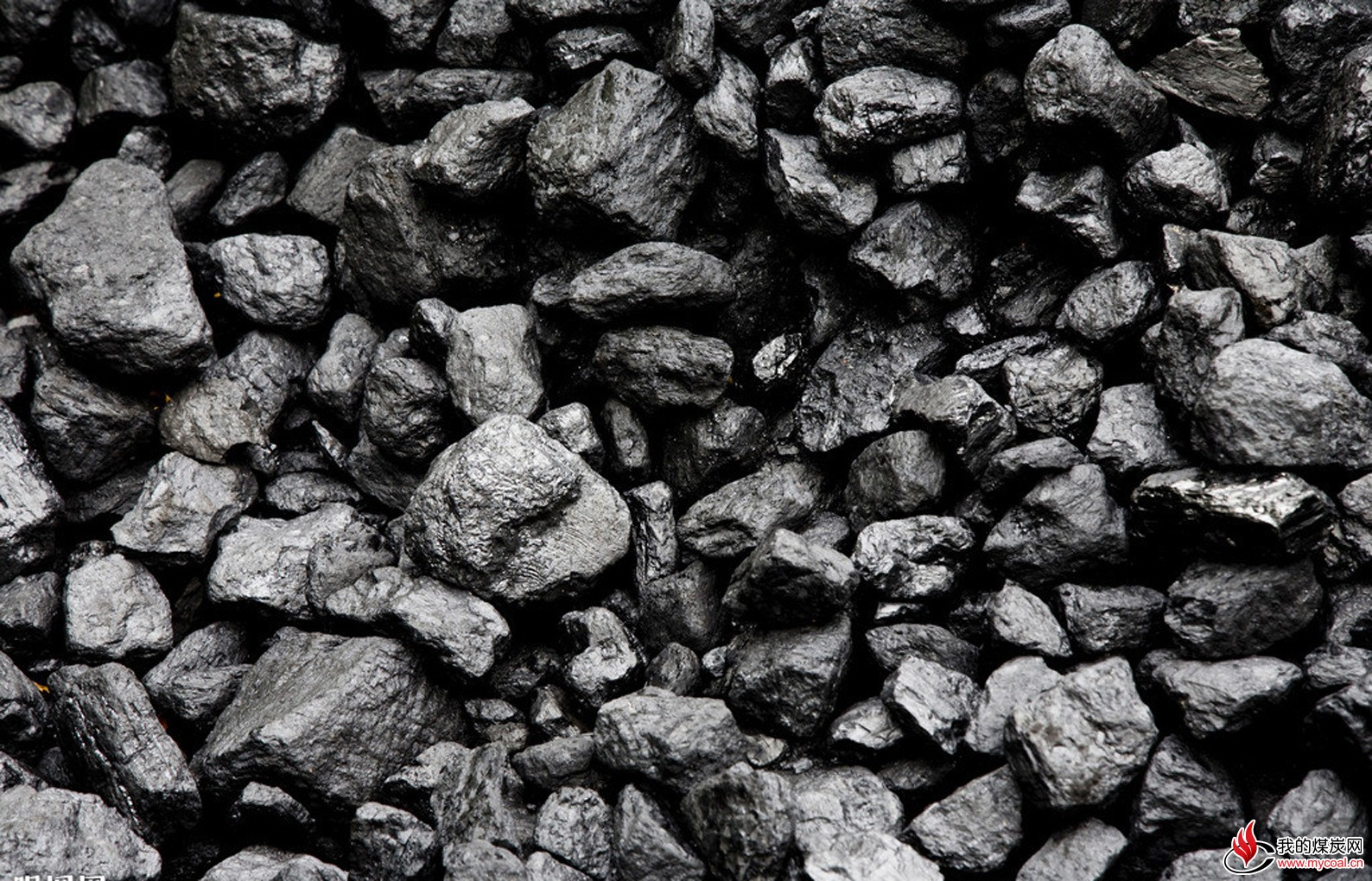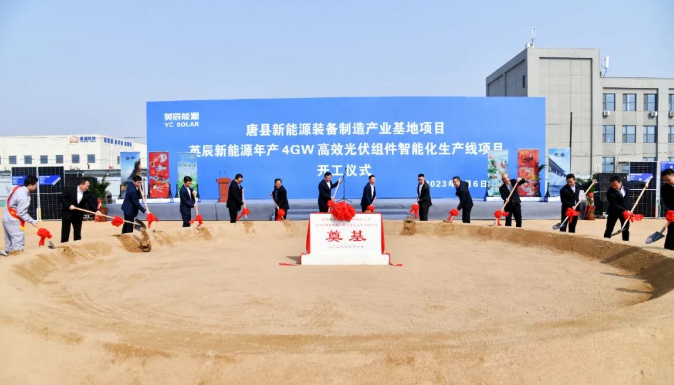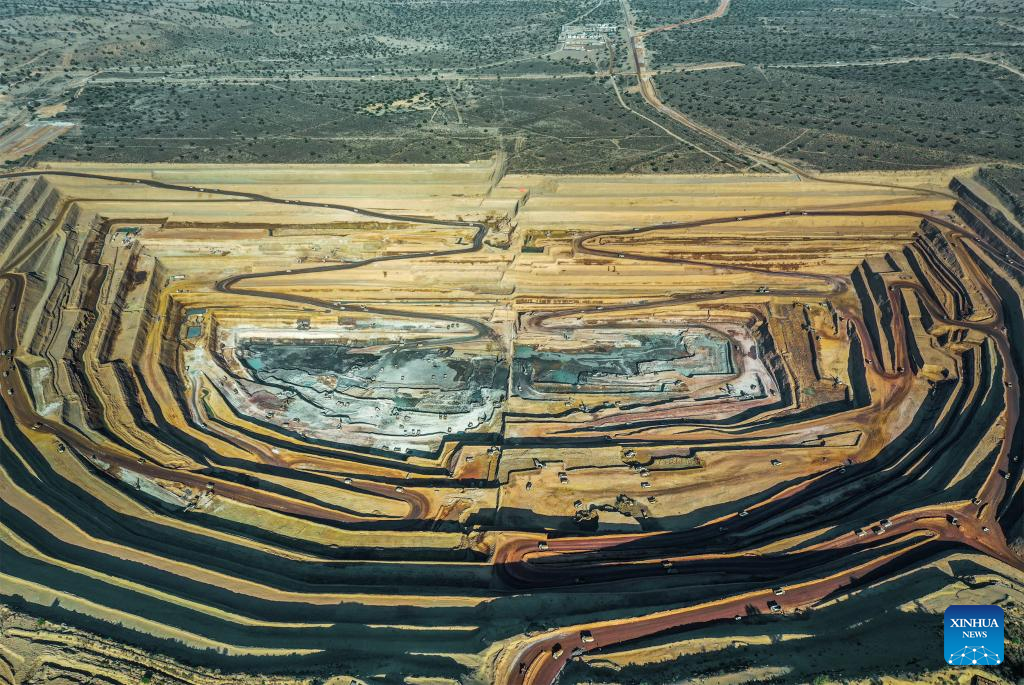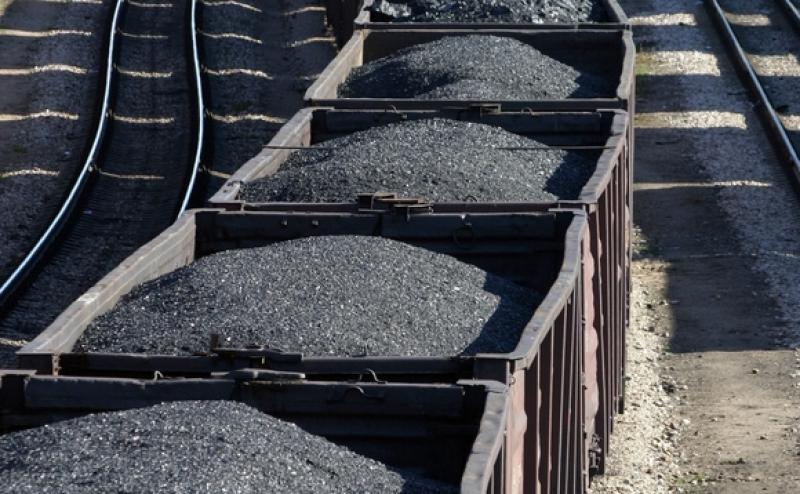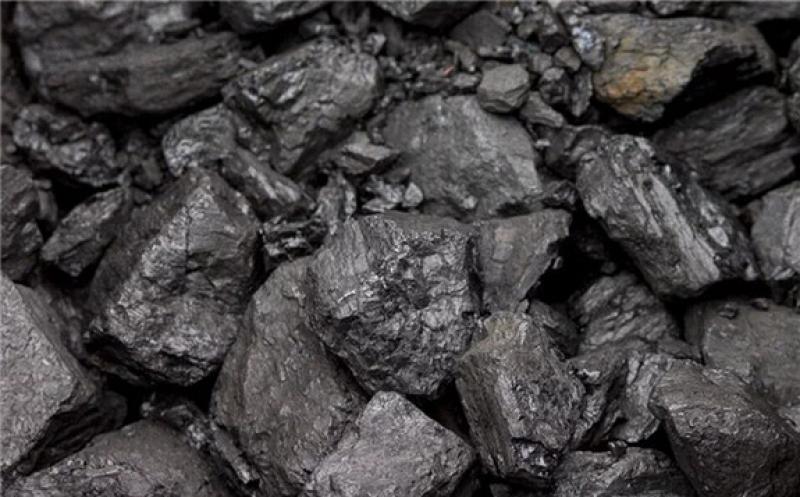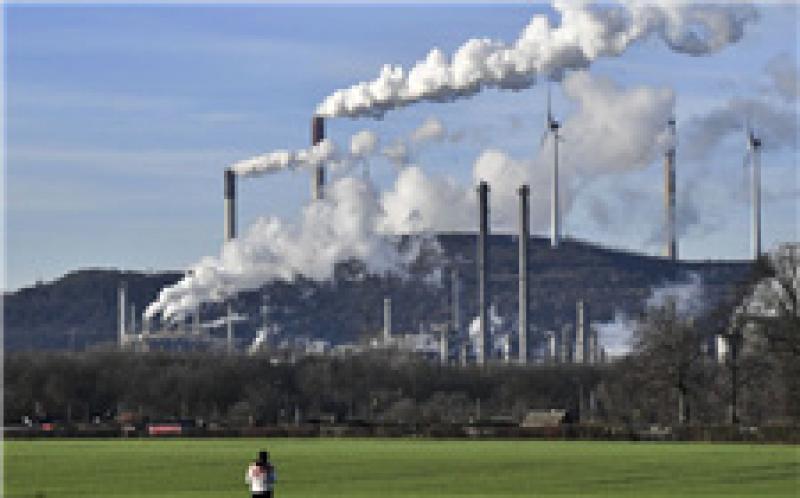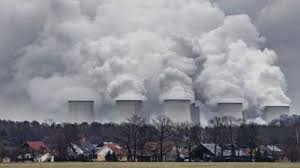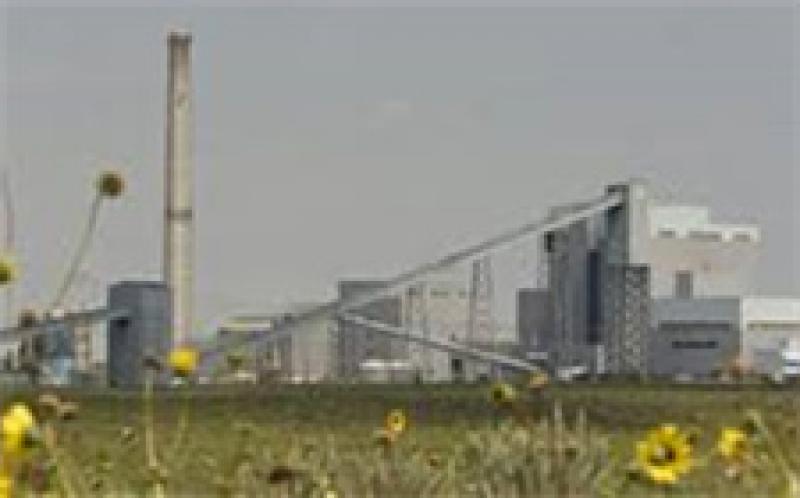Hydrogen is an ideal, environmentally and climate friendly alternative to fossil fuels in many places – and can be generated by wind power. One of the goals of the Bremerhaven initiative H2BX is therefore to promote the fuel cell as an alternative to the heavy and limited capacity batteries in electric vehicles.
Use special competence for renewable energies for next steps
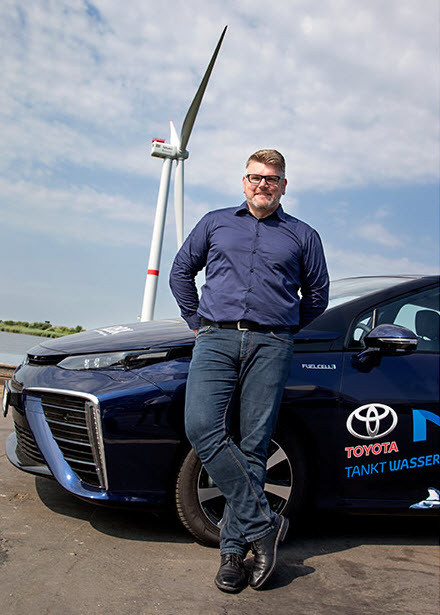
Claas Schott, chairman of the initiative H2BX, image: H2BXThe standard question on the topic of safety in hydrogen is answered by Claas Schott reflexively. “No, hydrogen is no more dangerous than petrol or natural gas, even though everyone clearly has in mind the image of the burning Zeppelins ‘Hindenburg’.” The transportation of the gaseous element under normal pressure is no problem either: “Trucks with special cylinders or gas tanks have been part of everyday life on our roads for many years. “With good reason, Schott already provides answers to such security questions before they are even asked. Because he wants to quickly come to his actual topic: the benefits of hydrogen as a climate and environmentally friendly energy source, which can also be produced easily and without consumption of natural resources.The 46-year-old is chairman of the initiative H2BX – Hydrogen for the region of Bremerhaven eV And their work shows three years after the founding already great effect: Two companies will soon bring a hydrogen-powered truck in the regular factory traffic; A shipyard and a shipping company are currently developing plans for a fuel cell-powered excursion ship. And because a whole range of companies and private individuals have pledged to H2BX to purchase more than 40 hydrogen-powered vehicles in the near future, the commissioning of the first hydrogen filling station in Bremerhaven is planned this fall. According to the Federal Motor Vehicle Agency about 400 nationwide approved hydrogen vehicles that would be an impressive 10 percent of all approvals.
Using electricity from wind power to produce climate-friendly and cost-effective hydrogen
Schott’s commitment to hydrogen and fuel cell technology has a concrete background. Before moving to the technical laboratory of the University of Bremerhaven, the graduate engineer worked in the offshore wind energy industry in Bremerhaven and Cuxhaven, where he was responsible for the planning and approval of large wind farms in the German Bight.Even though the German government has currently slowed down the expansion of this climate-friendly power generation, Schott is still convinced: “Offshore wind power is indispensable for the success of the energy transition and for climate protection.” Wind energy can be supplied via the reliable and low-emission supply of electrical energy In addition, energy also has a decisive advantage for hydrogen production: “The electricity produced from wind power can be used to produce hydrogen as an energy source in an excellent and cost-effective manner,” explains Schott.
Hydrogen production is one of the hurdles
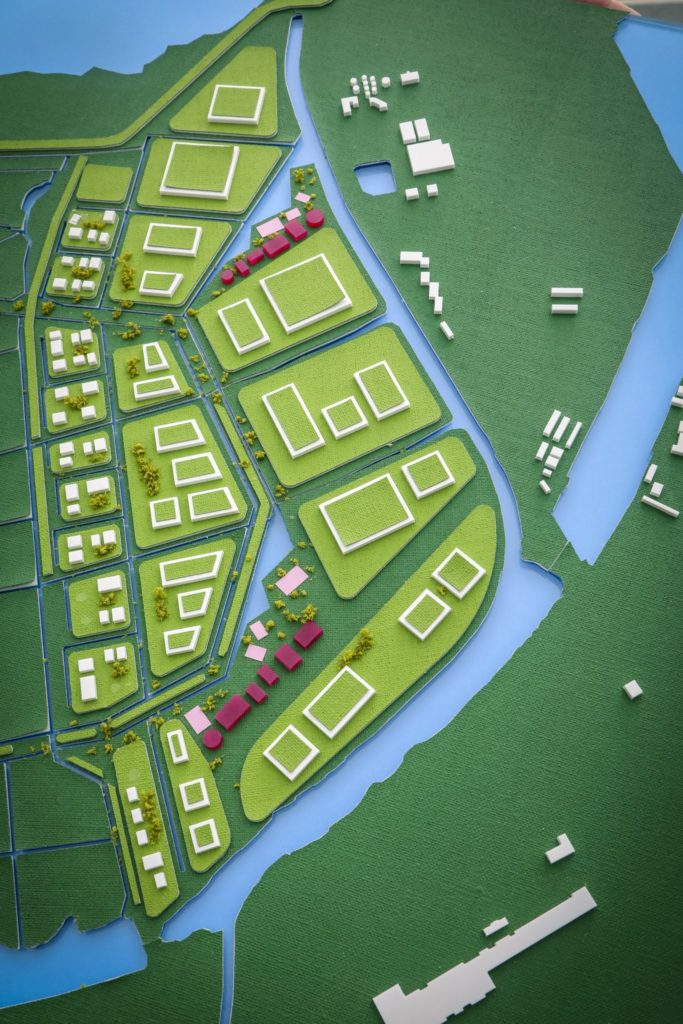
Directly on the border to the largest nature reserve of the state of Bremen lies the sustainable commercial and industrial area. Image: WFB / Focke Strangmann“Water is split into oxygen and hydrogen by electrolysis – quite simply, everyone knows that from the chemistry class,” says Schott. What had to be done in school with simple batteries is not much more expensive on a large scale, but so far avoided for cost reasons. For decades, especially so-called “gray” hydrogen has been produced on an industrial scale – hydrogen, which is produced from methane gas and thus is not particularly environmentally friendly, because CO2 is produced during production.That should change. In the future, “green” hydrogen will be produced by electrolysis using electricity from renewable energies. “The necessary technology for electrolysis and storage of hydrogen fits in containers and could be placed next to a wind turbine,” says the H2BX chairman. “In the case of the large offshore wind turbines, the devices could even be easily accommodated in the towers.” Even today, hydrogen is used in many sectors of industry as a process gas or as an energy carrier. Meanwhile, all well-known manufacturers of heating systems have brought fuel cells for the production of heat and electricity on the market, so that the technology moves into the private households.
Green hydrogen is the ideal alternative to fossil fuels
“Hydrogen produced with the help of wind power is the perfect alternative to fossil fuels, which we have to do without as quickly as possible in view of the urgent climate protection issue,” emphasizes Schott. “This insight has to get around even more,” he is convinced. After years of discussing this topic with friends and colleagues, Schott founded the H2BX initiative three years ago – and met with great interest in Bremerhaven’s economy and science.Companies from the typical Bremerhaven food industry, the port industry, the transport and logistics industry, the offshore industry and institutions such as Bremerhaven University of Applied Sciences, Klimehaus Bremerhaven 8 ° East and the city of Geestland as well as the business development agency BIS Bremerhaven have already joined H2BX , The name is a combination of the past and the future of the city: H2 is the chemical symbol for a hydrogen molecule, with BX all the characteristics of the Bremerhaven-registered fish steamer began: “Hydrogen has a similar strong potential as the fishery that has spurred Bremerhaven’s economy for decades “, Schott is convinced.
Concrete projects with trucks and excursion ship
In the meantime, this potential is already evident in concrete projects. For example, a well-known cooling logistics company has joined the initiative – with a clear motivation: “The company uses hundreds of thousands of liters of diesel per year for its trucks and wants to significantly reduce this burden on the environment and the climate,” explains Schott. The company is now launching a model project together with a well-known manufacturer of frozen food in Bremerhaven: A truck that is regularly used on the Bremerhaven – Hanover line is to be converted to fuel cell technology.
Another project is the construction of an excursion ship, whose predecessor was once used for rides on the river Geeste through the idyll of the northern German march. Again, hydrogen and a fuel cell to be used instead of the usual diesel engine. The fuel cell, in which hydrogen and oxygen are combined into water and thereby release electrical energy, is one of the well-known and proven technologies: “In order to promote their use, however, more practical experience must be gained,” says Schott. In the past, there have been similar initiatives in Hamburg, among others: “Hydrogen is not a purely Bremerhaven topic; we are aiming for a network of different North German initiatives,” emphasizes Schott.
New industrial park dedicated to the “green economy”
Bremerhaven has already created a good basis for the future economic use of hydrogen. Adjacent to the fishing port, a new business park has been developed, which is explicitly dedicated to the green economy. There, start-ups around environmental and climate protection topics can settle in exactly the same way as industrial companies that, for example, mass-produce fuel cells. Of course, the electrical energy is green, which is provided to these companies. Right next door is the prototype of an eight-megawatt wind turbine. “It would also be possible to accommodate a hydrogen production plant there,” argues Schott.The plan is to commission the first hydrogen filling station in the Elbe-Weser region this autumn in Bremerhaven. It is also a success of the H2BX initiative: As a prerequisite for the investment, the operator expected more than 15 binding letters of intent from companies or private individuals that they use a hydrogen-powered vehicle in the near future: “After just four weeks we had all the necessary Assurances together, “enthuses Schott.” Like wind power and renewable energies, hydrogen is a topic firmly rooted in Bremerhaven. ”
New North German hydrogen strategy
The Bremerhaven advance also meets with support at the provincial level: In the summer of 2019, the five northern German states agreed a joint hydrogen strategy for the first time. Their goal is to build a hydrogen economy in the north and thus use the proximity to the sustainable energy producers – the wind farms. According to the paper, hydrogen is expected to help generate new sectors for the use of green fuel, which are currently using fossil resources, such as steelmaking.
The paper proposes to take the first steps towards building a hydrogen economy by 2025, together with increased expansion of renewable energies. Bremerhaven will play an important role in this – as at least Schott and his fellow campaigners are convinced of H2BX.
